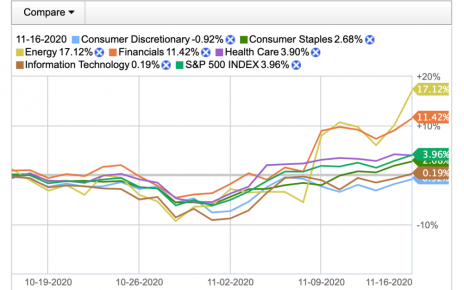For the first time since January 2015, the majority of the Senate is in the hands of the Democrats. The party pulled off a stunning double victory in Georgia’s runoff elections, turning the traditionally conservative state firmly blue following President-elect Joe Biden’s win there in November.
With Vice President–elect Kamala Harris’s tie-breaking vote in the Senate, Democrats now control both houses of Congress in addition to the presidency. It makes Biden’s first two years in the White House significantly less daunting as he’ll face far less obstruction than he would from a Mitch McConnell–led Republican majority Senate.
Ahead of November’s presidential election, Democrats were moderate favorites to take back control of the upper chamber. Disappointing results in the likes of Maine, North Carolina, and Iowa meant that Democrats needed to pick up both of Georgia’s available Senate seats, both of which were available due to a fluke set of circumstances: the 2019 retirement of Republican Sen. Johnny Isakson and incumbent David Perdue’s failure to capture 50% of the vote, which Georgia state law requires to declare a winner.
With the rest of the Senate races and the presidential election wrapped up by mid-November, Georgia became the center of the American political universe for the remainder of 2020. A record amount of fundraising money poured into the state in support of the candidates. On the Republican side: Perdue and Sen. Kelly Loeffler, a businesswoman appointed by Republican Georgia Gov. Brian Kemp to replace Isakson. Democrats featured Jon Ossoff, a documentary film producer, and Rev. Raphael Warnock, a minister, as their respective challengers.
More than 3 million Georgia residents cast their vote in the runoff races ahead of Election Day, dwarfing the previous 2008 record of 2.1 million total votes cast in a Georgia Senate runoff. Participation for Black voters in particular appeared relatively high, with an online vote tracker showing that 31% of the turnout was from Black voters. Eligible Black voters in Georgia grew by 1.9 million from 2000 to 2019, accounting for nearly half of the state’s electorate growth in that time.
On election night part two, broadcast networks labeled the race too close to call as batches of votes rolled in from in-person voting centers and mailed-in absentee ballots. Democrats clinched both seats when the Associated Press called the race for Ossoff on Wednesday afternoon.
Questions will be raised over President Trump’s role in the race. The President has been criticized for dividing the Republican party over his refusal to accept results of the election back in November. Some GOP legislators also said that Trump’s insistence for a $2,000 stimulus check, despite Senate Republicans vote for $600 checks, made the party look bad ahead of the runoffs.
“When you tell people, your vote doesn’t count and has been stolen, and people start to believe that, then you go to the two senators and ask the secretary of state to resign and trigger a civil war in the Republican Party when we need to unite, all of that stems with his decision-making since the Nov. 3 election,” Gabriel Sterling, a prominent GOP election official in Georgia, said on Tuesday.
On Wednesday, Congress will meet to vote on certifying the Electoral College’s votes for Biden. A number of Republican Congress members have pledged to vote against Biden’s certification, though it almost certainly won’t change Biden’s status as the victor.
More politics coverage from Fortune:
- The biggest conspiracy theories of 2020 (and why they won’t die)
- Under Biden, expect more scrutiny of Big Tech and mergers
- Why a key Georgia county flipped from red to blue—and what it means for Democrats
- Pfizer, Trump, and Biden: A twisted triangle that’s complicating COVID-19 relief
- Biden’s first 100 days: Student loan debt won’t go anywhere





